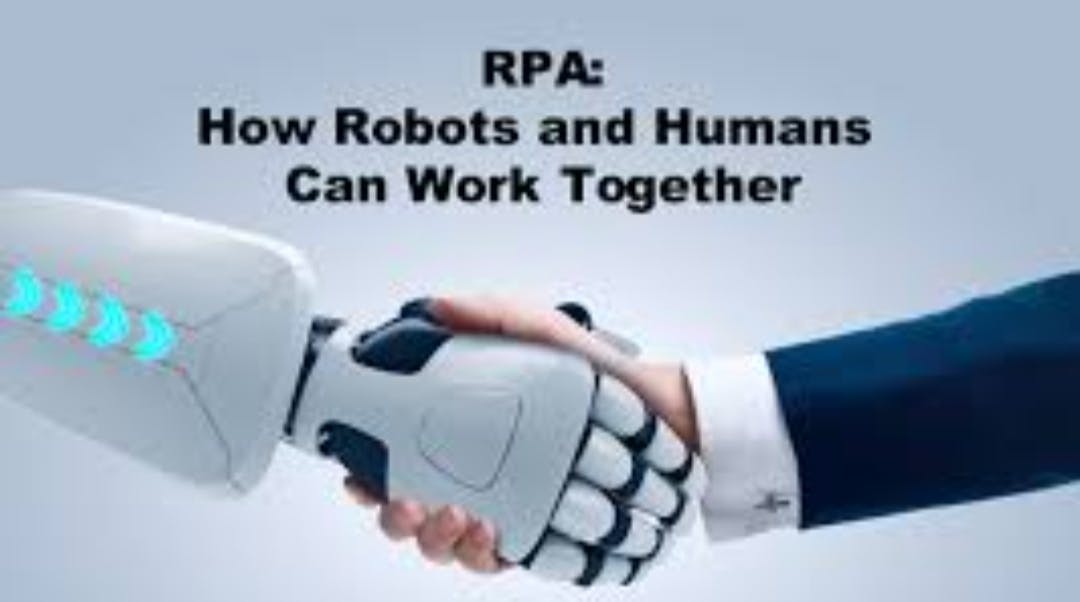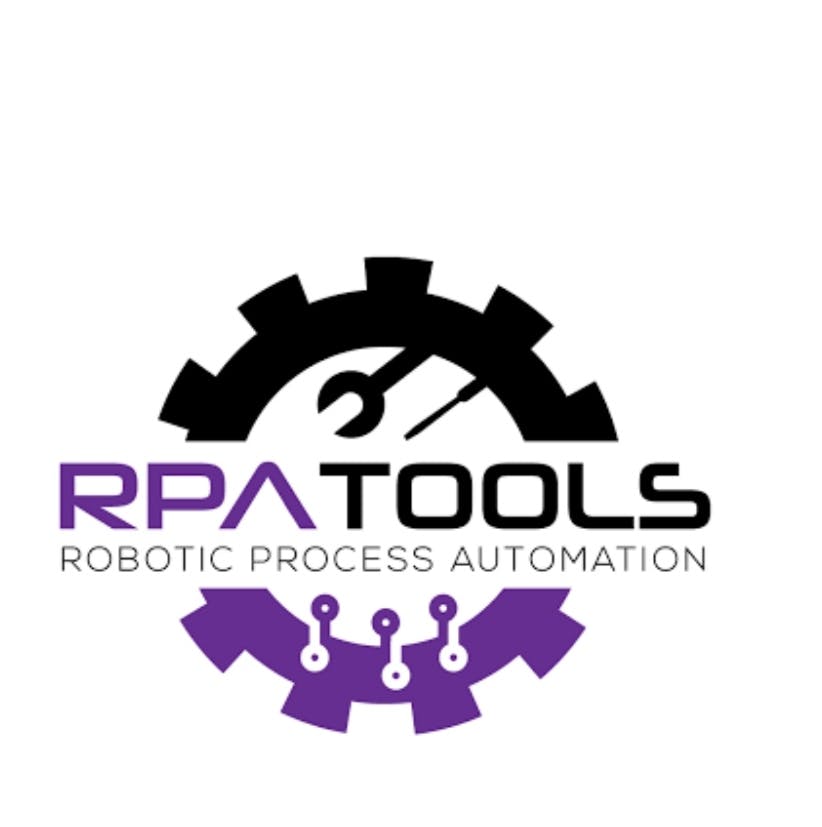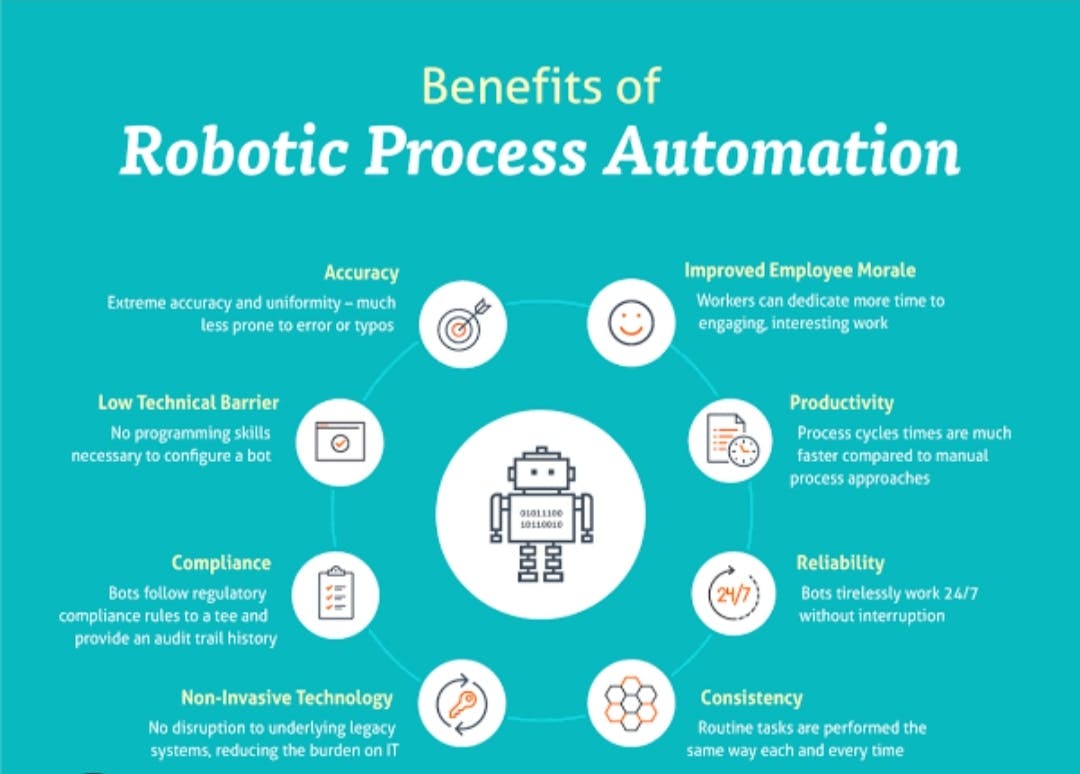As soon as we hear the term robotic process automation, we get the images of physical robots performing labour activities like cleaning, lifting heavy objects and doing all the works similar to humans. Right?

But ROBOTIC PROCESS AUTOMATION is much more than what we all think!
What is RPA?
RPA is a software technology that makes it easy to build, deploy and manage software robots that replicate humans actions by interacting with digital systems and software.

In simple words it is an extremely high level programming language as the majority of it's instructions will be tied in with manipulating things on the screen and processing data.
The robots designed by RPA work both physically as well as virtually.
Now you may all think that, whether RPA is as same as Machine learning or AI?
But the answer to this is 'NO'. That's because both machine learning and AI are driven by data. RPA on the other hand requires rules input by humans to function properly. In simple words it requires human programming to complete the tasks.

What are the tools used in RPA?
There are many tools used in RPA. Some popular ones are
Key sight's eggplant
Infectra rapise
Blue prism
Uipath
Automation anywhere
Pega
Contextor
Microsoft powe automate
Nintex RPA
SAP intelligent RPA

Which tool is best for beginners?
"Uipath " is the top tool and also the easiest tool to learn RPA, because it does not require any prior knowledge of programming languages to use it and implement RPA. People with no programming background can also learn RPA using this tool.
Where are RPA used?
RPA is used in most industries, particularly those that include repetitive tasks such as insurance, banking, finance, healthcare and telecommunications.
RPA is used in finance to automate governance, reconcile accounts or process invoice.

Future of RPA?
The future of RPA is integrated, intelligent and intutive!
Automation and technology facilities it to move quickly.

It's human nature to look for the benefits in very aspects of life, so
The benefits of RPA are
Capacity and scalability
24/7 operations
Operational speed
Quality
ROI <1year
Refocusing on highly skilled people
Cost reduction
Internal control and compliance



